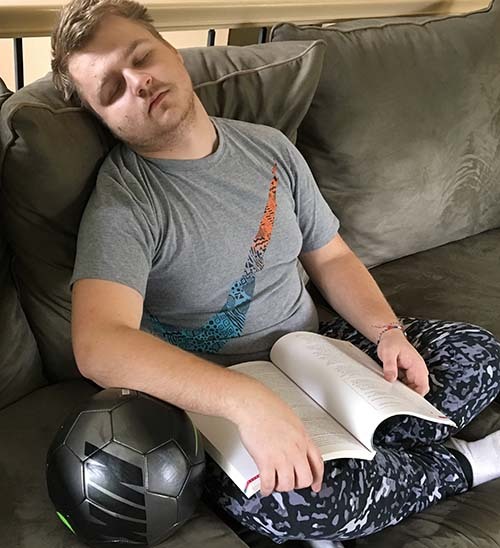As pressures mount to shift to later school start times for teens many districts won't because of sports. Athletes are trained to tough it out, push it to the limit, power through discomfort and fatigue. Districts encourage all students to participate in sports for their health and well-being. So what's really in the best interest of teens?
In 2014 the American Academy of Pediatrics released a policy statement saying that "insufficient sleep in adolescents [is] an important public health issue that significantly affects the health and safety, as well as the academic success, of our nation's middle and high school students." In 2015 the Centers for Disease Control and Prevention issued a statement urging policymakers to shift to later start times for teens so they can get the 8.5 to 9.5 hours of sleep they need every night.
Seattle Public Schools is the largest urban school district to act on these recommendations. We're now in the process of adjusting all our athletic programs so we can shift to later start times next year. There are some complications and costs, but our teen athletes will benefit at least as much as other students.
It's indisputable that sleep has enormous impact on athletic performance. One study found that even moderate sleep deprivation has the same impact on reaction time as being legally drunk. Another study found that athletes who slept less than 8 hours were 1.7 times more likely to suffer injury compared with athletes who slept more than 8 hours.
In stark contrast studies find that athletes who sleep more benefit from improved athletic performance, mood and alertness; greater speed and accuracy; more strength and stamina. A University of California study suggests that sleep does more to improve performance than excessive practice and competition, which increases injury rates. Star athletes know how important sleep is, and some teams are bringing on sleep experts to boost performance.
Obesity is a growing epidemic in our country and participation in sports is important in combatting it. However dozens of studies draw clear and direct links between sleep deprivation and obesity. People who don't sleep enough have a higher risk of weight gain and obesity than people who do. Adequate sleep may be as effective as diet and exercise in the battle against the bulge. A regimen that includes adequate sleep is much more likely to succeed. If we give teens the opportunity to get the sleep they need they'll have the energy and stamina to participate in sports.
The bottom line is sleep enhances athletic performance and participation. Students need both. Sports are not a substitute for adequate sleep, and it's not in the best interest of students to power through fatigue. The ravages of sleep deprivation are real and proven, as are the benefits of adequate sleep. It's the single most cost effective way to enhance athletic and academic performance, while also reducing stress, injury, accidents and even teen pregnancy. Districts need to power through the challenges of changing sports schedules and give sleep a chance.
